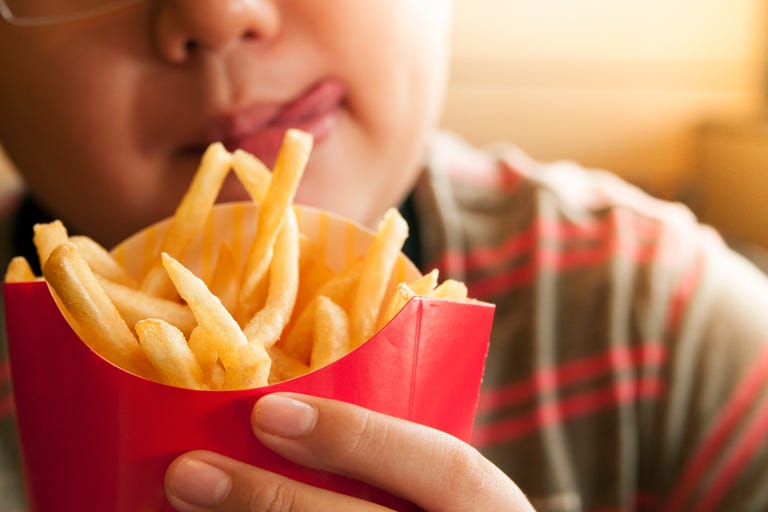
The United Kingdom, like the United States, is facing a massive obesity epidemic. In 2017, the Organization for Economic Co-operation and Development even named it the most obese nation in all of western Europe.
How did it get that way? According to new research, social media may be at least partially to blame.
Conducted by the University of Liverpool, the study found that children who see or watch their favorite social media stars consuming high-calorie and sugary treats are more likely to choose the unhealthy treats themselves.
To come to its conclusion, the team split 176 children into three groups, and showed each group a different image from social media. One group was shown an image of their favorite personalities promoting unhealthy snacks; another group was shown healthy foods; and the third group was shown non-food products, according to the BBC. The researchers used images from social media influencers Zoella — who has 10.9 million followers — and her boyfriend Alfie Dyes, who has 4.6 million followers.
Happy Easter Sunday! We’re making our way home today which I’m actually sad about (Although very excited to see Nala) one of the things I would DEFINITELY recommend you try in NYC is the @cookiedonyc cones! MY GOD, they are incredible! (I didn’t eat two, I was holding Poppy’s) Can you tell I have a major sweet tooth yet? ?
A post shared by Zoe Sugg (@zoella) on
After they viewed the images, the children were offered an array healthy and unhealthy snacks, including grapes, carrot sticks, chocolate buttons, and jelly candy, according to the Independent.
What did they choose to eat?
Children who had viewed the unhealthy images consumed an average of 448 calories. Those who viewed healthy foods or non-food images consumed just 357 — a 26-percent difference.
Can we take a moment ?
A post shared by Alfie Deyes (@pointlessblog) on
“We know that if you show children a traditional drink advert, then their preference for that drink rises. We wanted to test their reactions to this new type of celebrity, the social media star,” Anna Coates, the lead researcher on the study, added. “Now that we’ve shown that children are influenced by online stars, our next study will look at whether they understand that, in many cases, celebrities are being paid to promote products.”
Here’s an example of the paid promotions Coates was referring to:
Throwing back to the delicious #WorldNutellaDay brunch we had a few days ago! @Nutella #Ad
A post shared by Alfie Deyes (@pointlessblog) on
Following the study’s release, Professor Russell Viner, president of the Royal College of Pediatrics and Child Health, called on the government to consider more regulation to protect children as part of its child childhood obesity strategy, the BBC reported.
“It’s vital that children are protected from the marketing of junk food, not only on TV but also online where they are increasingly spending time,” he said. “Companies are able to target their adverts on social media, which does provide the opportunity for regulators to put restrictions in place.”
Source: Read Full Article
